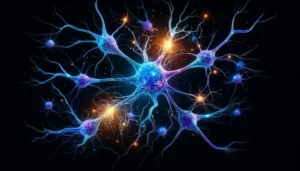Keto Diet for Migraine Relief – A Natural Remedy
Migraines aren’t just headaches; they are a severe neurological condition that can disrupt the lives of those affected. The search for relief brings many sufferers to explore various treatments, including dietary changes. Among these options, the keto diet for migraines stands out as a particularly effective approach.
The ketogenic diet, which emphasizes low carbohydrate and high fat intake, has been linked to numerous health benefits, and emerging research suggests it could also prevent the frequency and intensity of migraine attacks.

Migraines are a significant health concern in both the U.S. and Canada, affecting a substantial portion of the population. In the United States, approximately 12% of the population experiences migraines, with the condition being more prevalent among women, affecting 18% compared to 6% of men. Migraines are most common in the age range of 18 to 44 years. In Canada, the situation is similar, with around 12% of the population suffering from migraines, including 15% of women and 8% of men.
Additionally, about 10% of children are affected by migraines, highlighting that this condition is not limited to adults. The prevalence of migraines demonstrates its impact across various age groups and genders, underscoring the need for effective management and treatment strategies in both countries.
In this article, we’ll explore how adjusting your diet might be a vital strategy for managing and potentially preventing migraines. We’ll discuss scientific findings, personal testimonials, and the underlying mechanisms that connect the ketogenic diet to migraine relief. Whether you are a long-time sufferer or newly diagnosed, understanding the relationship between what you eat and how you feel can be a powerful step toward gaining control over your migraines.

The Link Between Your Diet and Migraine Frequency
Migraines are complex neurological disorders characterized by intense and debilitating headaches. These often come with nausea, light sensitivity, and even visual disturbances. Traditionally, migraines have been a puzzle both for those who suffer from them and for the scientists who study their mechanisms. Recently, however, research has begun to illuminate how certain dietary choices might influence migraine frequency and severity.
A groundbreaking 2024 study by Angela A. Stanton, published in Frontiers in Nutrition, explores this connection. Stanton’s research suggests that diets low in carbohydrates, such as ketogenic and carnivore diets, can significantly affect the occurrence of migraines. The hypothesis centers around an essential mineral balance in the brain, particularly sodium levels, which are crucial for proper neuronal function.
Stanton explains that a high carbohydrate intake can lower serum sodium, leading to electrolyte imbalances that might trigger migraines. Conversely, low-carb diets tend to increase serum sodium availability, potentially reducing migraine occurrences.
“The brain of a migraineur is hypersensitive and requires more minerals for increased neuronal communication,” Stanton notes. This sensitivity makes migraineurs particularly reactive to any shifts in their environment, including changes in diet.

The research underscores the importance of managing sodium intake and reducing carbohydrate consumption for those susceptible to migraines. By adopting these dietary changes, migraine sufferers can establish a healthier metabolic foundation, potentially easing or even preventing their symptoms. This approach moves away from relying solely on medications and shifts toward holistic, lifestyle-based interventions.
This perspective not only offers hope but also empowers migraine sufferers to take an active role in managing their condition through informed dietary choices. As we continue to uncover how specific foods impact neurological health, the potential to improve the quality of life for many becomes increasingly apparent.
A high carbohydrate intake can lower serum sodium, leading to electrolyte imbalances that might trigger migraines. Conversely, low-carb diets tend to increase serum sodium availability, potentially reducing migraine occurrences.

The Ketogenic Diet: A Deep Dive into Its Mechanisms for Migraine Prevention
The ketogenic diet, often called “keto,” significantly reduces carbohydrates and increases fat intake. This switch drives the body into a state known as ketosis.
Here, fats are the main energy source, not sugars. The keto diet is well-known for aiding in weight loss and managing diabetes. It also shows great promise in preventing migraines, termed as the keto diet for migraines.
A notable study in the Journal of Clinical Medicine evaluated the keto diet’s impact on migraine sufferers. Over three months, 23 participants followed a strict ketogenic diet. The outcomes were significant. The average number of headache days dropped from 12.5 to 6.7 per month. The days needing acute medication reduced from 11.06 to 4.93.
Interestingly, these benefits seemed unrelated to weight loss. The study noted no weight or fat mass loss differences among participants who responded to the diet. This suggests the diet’s migraine prevention benefits stem from ketosis-induced physiological changes.
Ketosis alters brain energy utilization, which can stabilize neurons and reduce inflammation, a key migraine trigger. By reducing carbohydrate intake, the body uses ketones for energy, potentially calming the brain. This shift can lead to fewer and less severe migraines, improving life quality beyond traditional treatments.
The keto diet for migraine relief offers a promising alternative to drugs. As we explore how diet affects neurological health, the ketogenic pathway stands out. It could manage, and even prevent, migraines through dietary changes.
Over three months, 23 participants followed a strict ketogenic diet. The outcomes were significant. The average number of headache days dropped from 12.5 to 6.7 per month. The days needing acute medication reduced from 11.06 to 4.93.
Real-Life Success Stories: Keto Diet Impact on Migraine Management
The theory behind the ketogenic diet for migraines is compelling, but real-life stories can truly highlight its potential. These anecdotes from the Frontiers in Nutrition paper not only provide a human touch but also illustrate practical applications of dietary changes in combating migraines.
Marathon Runner’s Breakthrough

One such story involves a marathon runner who was not overweight and appeared metabolically healthy. Despite this, she suffered from frequent migraines, especially after long runs and during hormonal changes associated with her menstrual cycle. After consulting with a dietary expert, she adopted a low carbohydrate high fat (LCHF) diet, and later transitioned to a strict ketogenic diet.
Instead of using sugar gel packs during marathons, she switched to butter, cheese, and salt packs. She also began to sip saltwater instead of regular water during her runs.
This dietary adjustment not only stabilized her energy levels during marathons but also led to a significant milestone—celebrating a year free from migraines.
This dietary adjustment not only stabilized her energy levels during marathons but also led to a significant milestone—celebrating a year free from migraines.
Teenager’s Recovery from Cyclical Vomiting Syndrome
Another impactful story comes from a teenager suffering from cyclical vomiting syndrome and irritable bowel syndrome, triggered by high carbohydrate intake. Under medical supervision, he shifted to a high-protein, medium-fat carnivore diet.
This change not only alleviated his gastrointestinal symptoms but also had a profound effect on his migraine episodes. Over the years, this diet allowed him to maintain a stable condition. His success culminated in completing the Marine’s Crucible, a rigorous test in U.S. Marine Corps training, without experiencing any migraine or related symptoms.

These personal experiences underscore the potential of dietary interventions like the keto diet for migraines. They provide tangible evidence that such changes can profoundly affect the lives of individuals struggling with this debilitating condition. These stories offer hope and a blueprint for others who might still be searching for relief from their migraines through natural and sustainable means.
This change to a carnivore diet not only alleviated his gastrointestinal symptoms but also had a profound effect on his migraine episodes.
Additional Research Findings on the Keto Diet for Migraine Prevention
While personal stories provide compelling testimonials, broader research studies offer a more comprehensive understanding of how the keto diet can be a powerful tool in preventing migraines. These studies examine the diet’s effects on a larger scale, providing scientific backing to anecdotal evidence.
Study Findings from Neurological Sciences
A significant study published in Neurological Sciences investigated the ketogenic diet’s role in managing episodic and chronic migraines. The research compiled data from 150 patients across various case reports and prospective studies.
The findings suggest that the ketogenic diet can rapidly decrease the frequency and intensity of migraine attacks. This effect is believed to be due to changes in brain metabolism and a reduction in neuroinflammation.
The study posits, “KD may be a rapid onset effective prophylaxis for episodic and chronic migraine,” highlighting its potential to restore normal brain function and reduce neurological inflammation.
The research compiled data from 150 patients across various case reports and prospective studies. The findings suggest that the ketogenic diet can rapidly decrease the frequency and intensity of migraine attacks.
Mechanisms Behind the Effectiveness

The ketogenic diet influences the brain’s metabolic processes, potentially stabilizing neuronal activity and reducing triggers for migraine attacks. By shifting the primary energy source from glucose to ketones, the diet may help mitigate the over-excitation of neurons that often leads to migraines. This metabolic shift also appears to have anti-inflammatory effects, which are crucial in preventing the onset of migraine attacks.
These broader studies provide a strong scientific foundation supporting the keto diet for migraine prevention. They reinforce the idea that beyond individual success stories, there is robust scientific evidence suggesting that the ketogenic diet can offer significant relief to many migraine sufferers.
This body of research continues to grow, promising to refine our understanding of dietary impacts on neurological health and offering hope to those seeking alternatives to conventional pharmaceutical therapies.
Beyond individual success stories, there is robust scientific evidence suggesting that the ketogenic diet can offer significant relief to many migraine sufferers.

Key Takeaways
These points highlight the potential benefits and considerations for those contemplating this dietary approach to combat their migraines:
- Scientific Backing: Studies suggest that the ketogenic diet can significantly reduce migraine frequency and intensity. This is likely due to the diet’s impact on brain metabolism and its anti-inflammatory effects.
- Rapid Onset of Benefits: Research indicates that the benefits of the keto diet can manifest quickly, providing rapid relief from migraine symptoms. This is a promising factor for sufferers seeking immediate improvements.
- Dietary Adjustments: Transitioning to a ketogenic diet involves significant changes in eating habits, focusing on high fat and low carbohydrate intake. This shift can be challenging but rewarding for those who adhere to it.
- Beyond Weight Loss: The advantages of the ketogenic diet for migraine sufferers appear independent of weight loss. This suggests that the diet’s effectiveness is due to metabolic changes rather than just reduced body weight.
- Personal Success Stories: Anecdotal evidence from individuals, like the marathon runner and the teenager, reinforces the scientific findings and illustrates the real-world impact of the diet on migraine prevention.
Final Thoughts
The ketogenic diet holds significant promise for those suffering from migraines. By altering dietary intake to favor fats over carbohydrates, many individuals have experienced fewer and less intense migraine episodes. The scientific research, coupled with real-world success stories, provides a compelling case for considering the keto diet as part of a migraine management strategy.
For those who choose to try the keto diet for migraine prevention, the journey may be transformative, not just in managing migraines but also in enhancing overall health and well-being. While the diet is not a one-size-fits-all remedy, the evidence suggests it could be a valuable part of a comprehensive approach to reducing the burden of migraines.
So, whether you are a longtime sufferer of migraines or are newly diagnosed, the keto diet offers a potential pathway to not just manage but possibly reduce the frequency and severity of migraine attacks. With careful consideration and proper medical advice, it might just be the key to unlocking a more comfortable, less disruptive life free from the pain of migraines.
References
- Specifically formulated ketogenic, low carbohydrate, and carnivore diets can prevent migraine: a perspective. Frontiers in Nutrition
- Migraine Prevention through Ketogenic Diet: More than Body Mass Composition Changes. Journal of Clinical Medicine
- Ketogenic diet in migraine: rationale, findings and perspectives. Neurological Sciences
Keto PowerFlax Baking Mix: Keto & So Much More!

- Commercial Bakeries: you can easily produce delicious flax-based keto-friendly products which are clean label, high protein, high fiber and plant-based!
- Works with your current equipment and baking processes.
- Recipes provided on all bulk orders, with ongoing customer support
- Worldwide shipping
- Get in touch with us today!


